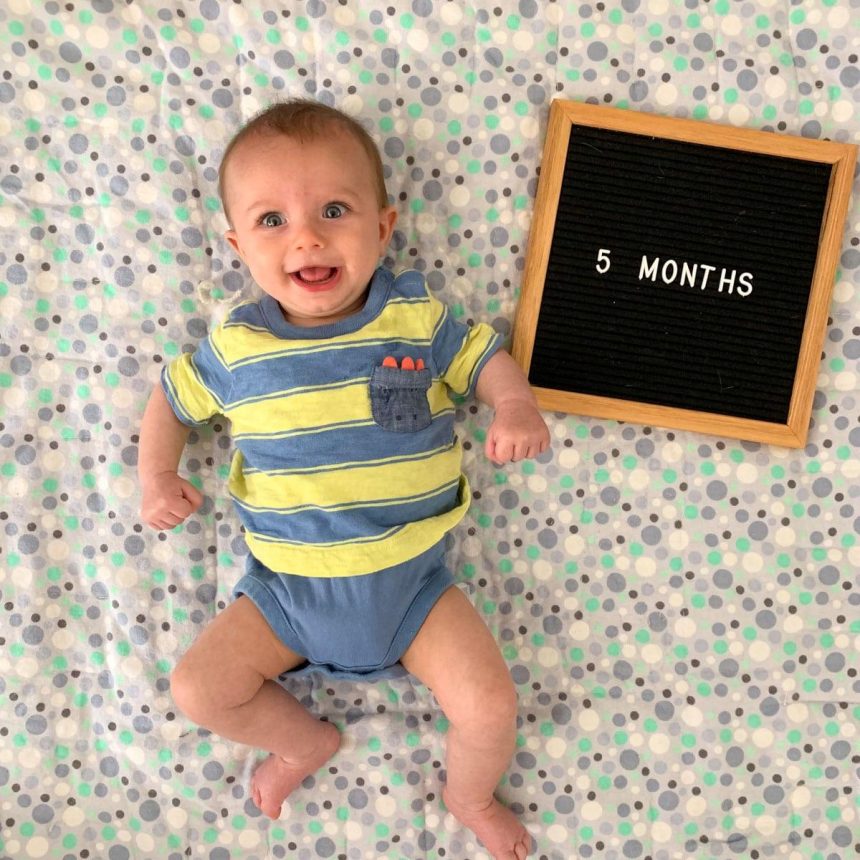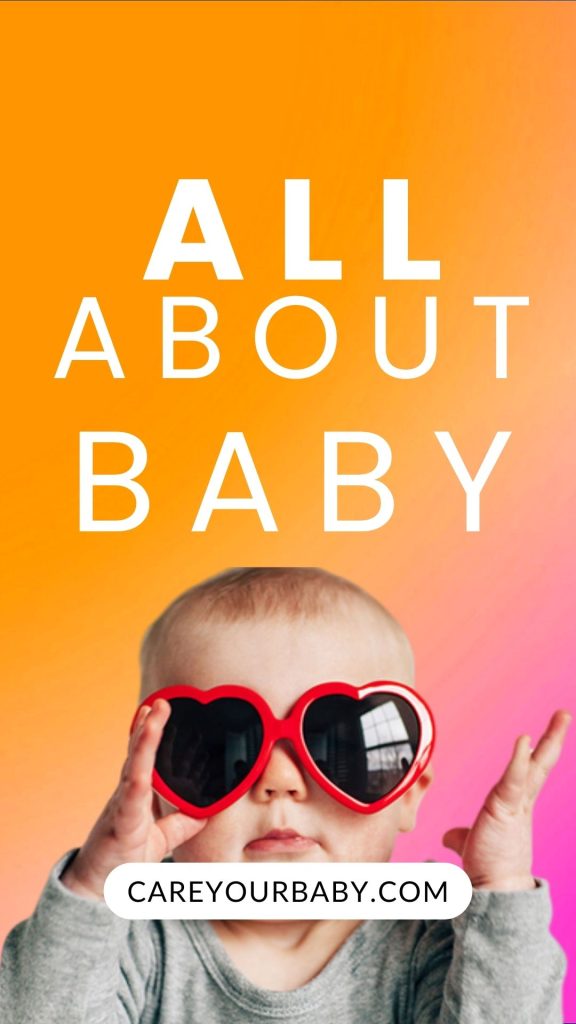Title: “5-Month-Old Fake Coughing: What It Means and How to Respond”
Introduction:
As parents, we often find ourselves navigating the labyrinth of our little ones’ behaviors, deciphering their cries and coos as if they were written in a foreign language. Among the myriad of sounds that can emanate from a baby’s mouth, one peculiar phenomenon stands out: the fake cough. While it might raise an eyebrow and prompt a chuckle, the implications of this curious vocalization can go far beyond mere mimicry. At just five months old, an infant’s ability to imitate, express, and even communicate can manifest in surprising ways, leaving caregivers to wonder about the meaning behind this relatively recent addition to their repertoire. Is it simply a phase of exploration, or does it signal something deeper? In this article, we’ll delve into the world of infant fake coughing—unpacking its potential meanings, why your baby might be doing it, and how you can respond in a way that fosters understanding and connection. Join us as we explore this delightful yet puzzling behavior, shedding light on a common, yet often overlooked aspect of early development.
Understanding the Nature of Fake Coughing in Infants
At around five months of age, infants begin to explore their vocal capabilities, and this often includes the amusing phenomenon of fake coughing. This simulated cough is not usually an indicator of illness but rather a form of self-expression and a way to grab attention. Infants are naturally curious, and they quickly learn that making new sounds can draw in caregivers or elicit reactions from those around them. This behavior can be a playful attempt to engage, mimic, or even amuse, showcasing their burgeoning communication skills.
While some parents may initially panic or assume the worst, understanding the motivations behind this behavior can help alleviate concerns. Paying attention to the context in which the fake coughing occurs is crucial. Sometimes, it might coincide with moments of excitement or frustration, signaling that the child is vying for connection or trying to express a need. It’s essential to respond warmly to this behavior to foster communication and reassure your baby that their attempts to engage are noticed. Here are some responses to consider:
- Engage with Laughter: Share a genuine laugh to encourage this playful side.
- Provide Vocal Feedback: Imitate the sound to show that you’re listening.
- Check for Needs: Ensure they’re comfortable, fed, and not in distress.
Recognizing Triggers Behind Your Babys Coughing Behavior
When a baby engages in **fake coughing**, it’s essential to observe closely to understand the underlying reasons. Babies, especially around five months, are in a phase of exploring their voices and expressing emotions. They may imitate sounds they hear from adults or siblings, leading to playful coughing. This behavior could also arise from boredom or a desire for attention, making it crucial for parents to discern whether the cough is genuine or a creative attempt to communicate. Here are a few common triggers to consider:
- Imitation: Babies love to mimic sounds, so if they hear coughing, they may repeat it.
- Attention Seeking: If a baby notices that they receive more attention when they cough, they might use it as a strategy.
- Frustration or Discomfort: Some babies cough as a way to express mild discomfort or to signal that they need help.
Identifying these triggers requires keen observation. Keeping a journal of your baby’s coughing instances can be helpful in pinpointing patterns tied to specific situations or environments. Parents should also consider the context: is there an increase in coughs during playtime, feeding, or nap transitions? Here’s a simple table to help track these patterns:
| Time | Activity | Reaction |
|---|---|---|
| Morning | Playtime | Giggling after cough |
| Afternoon | Feeding | Looks at parent |
| Evening | Bedtime | Coughs then settles down |
By understanding when and why your baby coughs, you can better respond to their needs, whether that means engaging them in play, providing comfort, or simply enjoying the moment together. This awareness transforms parental responses from reactive to proactive, supporting your baby’s development in a nurturing way.
Effective Strategies for Responding to Fake Coughs
When encountering a fake cough from your five-month-old, it’s essential to remain calm and observant. Fake coughs can often be attempts at communication or playful attention-seeking. To manage this behavior effectively, consider the following strategies:
- Stay Calm: Responding with excitement can reinforce the behavior. Instead, maintain a neutral demeanor.
- Engage in Play: Distract your baby with a favorite toy or activity, shifting their focus away from the coughing.
- Model Appropriate Sounds: Reinforce positive vocalization by modeling other sounds or playful babbling.
It’s also beneficial to ensure that your child feels secure and understood. Sometimes, fake coughing can stem from a desire for interaction. Here are some ways to nurture this contact:
- Positive Reinforcement: Celebrate genuine vocalizations with smiles or clapping, encouraging authentic communication.
- Routine Check-ins: Regularly engage with your baby during playtime or quiet moments to satisfy their need for attention.
- Observe Patterns: Take note of when the fake coughs occur and adjust your responses accordingly; this will help in identifying triggers.
| Strategy | Goal |
|---|---|
| Stay Calm | Prevent reinforcement of the behavior |
| Engage in Play | Redirect focus |
| Model Appropriate Sounds | Encourage genuine vocalization |
When to Seek Professional Advice for Your Childs Coughing
It’s important to trust your instincts as a parent. If your baby is making unusual coughing sounds, it may not always be a cause for concern, but certain signs can indicate the need for professional evaluation. Keep an eye out for the following symptoms:
- Coughing persists for more than a week
- Accompanied by fever
- Difficulty breathing or wheezing
- Signs of dehydration, such as fewer wet diapers
- Changes in the color of the skin or lips
Moreover, it’s advisable to consult your pediatrician if your child is exhibiting significant changes in behavior alongside coughing. Some of these changes may include:
| Symptom | Action |
|---|---|
| Extreme irritability or lethargy | Schedule a doctor’s visit |
| Refusal to eat or frequent vomiting | Seek immediate medical advice |
| Persistent runny nose with coughing | Monitor and consult if worsens |
Q&A
Q&A: 5-Month-Old Fake Coughing – What It Means and How to Respond
Q: What does it mean when my 5-month-old baby fake coughs?
A: Fake coughing in infants can be quite common and is often a part of their developmental exploration. At around five months, babies are beginning to mimic sounds and behaviors they observe in their environment, including coughing. This new vocal play is usually a harmless expression of curiosity rather than a sign of illness.
Q: Should I be concerned if my baby is coughing frequently?
A: While a few fake coughs here and there are typically nothing to worry about, pay attention to the context. If the coughing is accompanied by other symptoms like a runny nose, fever, or irritability, it could indicate an actual illness. In such cases, it’s best to consult your pediatrician to rule out any underlying issues.
Q: How can I differentiate between a fake cough and a real cough?
A: A fake cough often lacks the distress or discomfort that a real cough may elicit in your baby. If your little one seems happy, playful, or is otherwise acting normally, it’s likely just a playful imitation. A real cough, on the other hand, may be more frequent, sound harsh, or be accompanied by signs of discomfort, lethargy, or other symptoms.
Q: Is there anything I should do when my baby coughs, even if it’s just for fun?
A: It’s great to engage with your baby when they fake cough! A simple laugh or mimicking them back can be a fun interaction. However, if the coughing seems excessive or if your baby is reaching towards their throat, this might be worth discussing with a healthcare professional for peace of mind.
Q: Can fake coughing be a sign of language development?
A: Absolutely! Babies are keen observers and often imitate the sounds and actions they hear from their parents and those around them. This imitation is part of their early language development. Encouraging vocal play by responding to their fake coughs can help promote their communication skills.
Q: How can I support my baby’s communication development?
A: Engage your baby in vocalizations by making sounds, singing, and talking to them regularly. Respond to their “coughs” with smiles, laughter, or similar sounds. This interaction fosters a positive environment for language learning and encourages them to continue experimenting with their voice.
Q: When should I reach out to a pediatrician about my baby’s cough?
A: If your baby begins to cough persistently, if there’s a sudden change in their voice, if they appear to be in pain, or if there are signs of wheezing or difficulty breathing, it’s important to consult a pediatrician. Getting ahead of any potential issue ensures your baby stays healthy and happy.
Q: What other vocalizations might I expect from my baby?
A: In addition to fake coughing, your 5-month-old may start experimenting with coos, gurgles, and other playful sounds. Every baby develops at their own pace, so you may hear a delightful array of vocal expressions as they discover their voice and their ability to communicate. Celebrate and encourage these sounds as part of a critical developmental stage!
Conclusion: Fake coughing can be a charming phase in your baby’s development. It’s part of their journey as they learn to express themselves and interact with the world around them! Always stay observant, engage in playful interactions, and consult with a pediatrician if you have any concerns. Happy parenting!
Concluding Remarks
while the sight and sound of your little one faking a cough may initially strike you as adorable, it’s essential to understand the underlying reasons behind this behavior. Whether it’s a clever ploy to gain attention, a form of self-expression, or a budding exploration of the world around them, your 5-month-old is learning and growing in ways you might not expect. By observing closely and responding with empathy and care, you can support their development while also addressing any potential concerns. Remember, every little “cough” is a step in their journey of communication, and with your guidance, they will learn to express themselves in more meaningful ways. As always, trust your instincts, and don’t hesitate to consult with a pediatrician if you have any worries. Embrace the charm of these early months—they are fleeting, yet filled with wonder.


